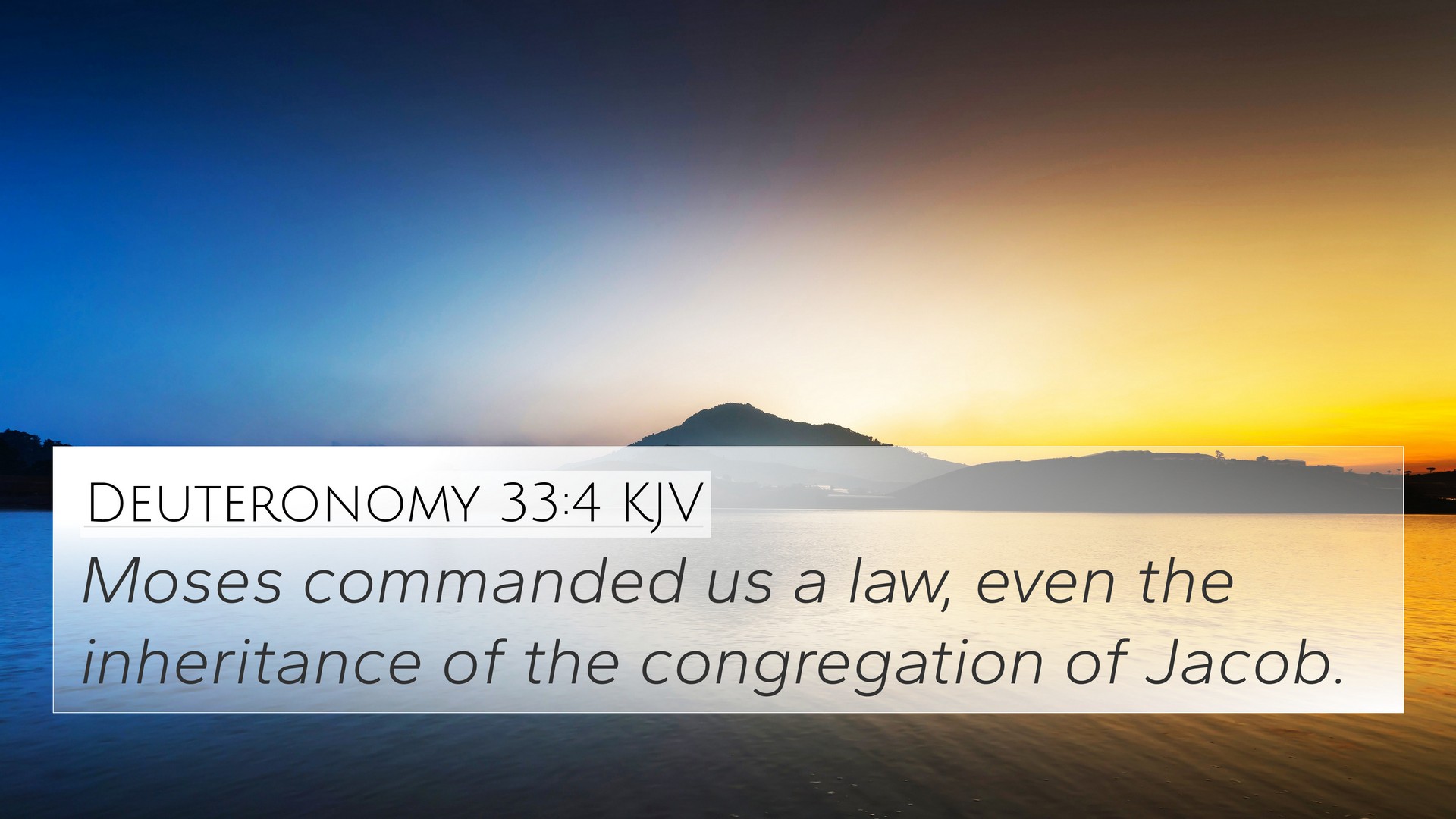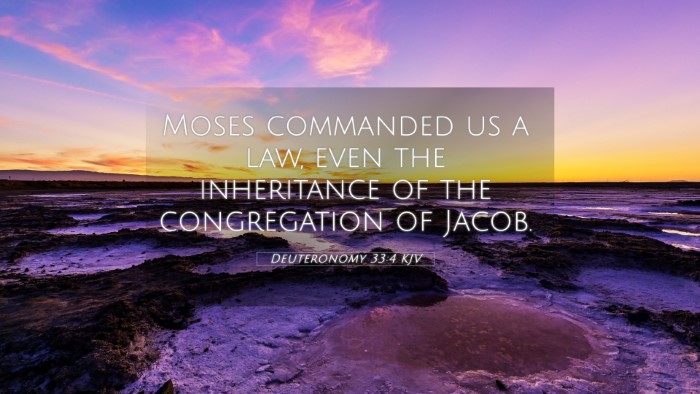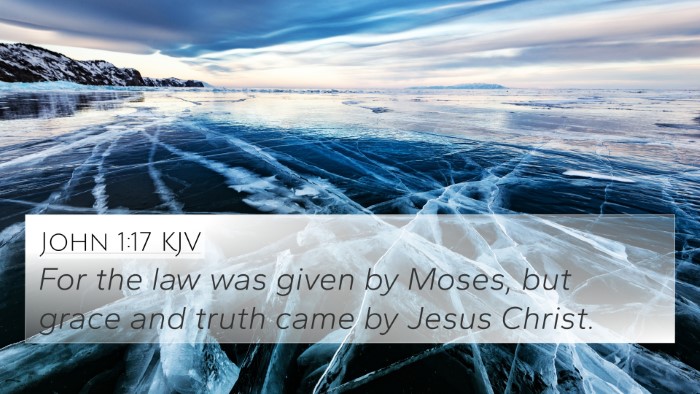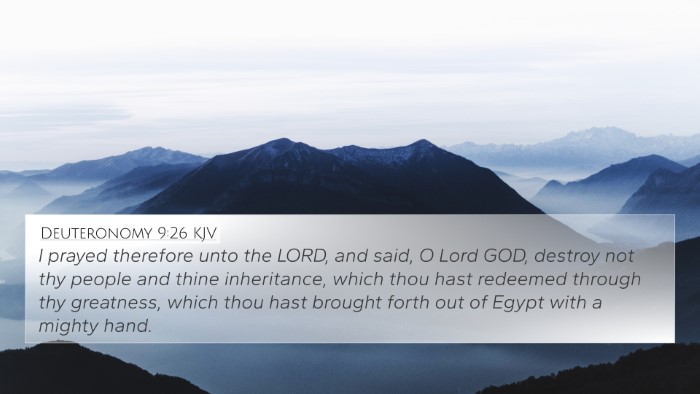Understanding Deuteronomy 33:4
Bible Verse: Deuteronomy 33:4 - "Moses commanded us a law, even the inheritance of the congregation of Jacob."
Summary and Meaning
This verse emphasizes the significance of the law given to the people of Israel through Moses. It encapsulates the essence of divine guidance and the inheritance promised to the tribe of Jacob. Here, we can draw insights from various public domain commentaries.
Insights from Commentaries
-
Matthew Henry:
Henry points out that the law given to Israel is not merely a set of rules but is integral to their identity. It serves as their inheritance, setting them apart as God's chosen people. Moses, as the mediator, transfers the weight of this importance to the people, reminding them that their obedience is tied to their blessings.
-
Albert Barnes:
Barnes elaborates on the concept of inheritance, suggesting that the law represents both a spiritual and physical legacy. This inheritance is to be cherished and protected by the congregation of Israel, as it defines their relationship with God and their responsibilities toward one another.
-
Adam Clarke:
Clarke emphasizes the term "congregation of Jacob," linking it to a collective identity of all tribes. He suggests that every Israelite shares in this law, highlighting the community aspect of the covenant and the call for unity in adhering to these divinely inspired rules.
Connections with Other Bible Verses
Deuteronomy 33:4 has numerous connections with other scriptures, reflecting thematic elements and reinforcing the principles laid out in the law. Here are some cross-references:
- Exodus 24:3: This verse recounts how Moses conveyed the words of the Lord to the Israelites, establishing the foundation of the law.
- Leviticus 26:46: It reaffirms the law as a covenant between God and His people, emphasizing the importance of obedience.
- Numbers 36:13: The need to adhere to Moses' commands and laws reinforces the concept of collective inheritance within the congregation.
- Deuteronomy 4:44-45: This passage discusses Moses' instructions and the statutes that will govern the Israelites as a marked distinction.
- Psalms 78:5: It recalls how God appointed a law for Israel, emphasizing the continuity of God's covenant through the generations.
- Hebrews 7:12: It highlights the change of the priesthood and the need for a change in law, linking old and new covenants.
- Romans 3:20: This verse illustrates the purpose of the law, elucidating that it brings awareness of sin, which complements the teachings in Deuteronomy.
- James 1:25: This reinforces the idea of the law as a guide for living righteously, contributing to the rich tapestry of biblical instruction.
- Galatians 3:19: Paul discusses the law's role in the context of the promise made to Abraham, linking to the theme of inheritance through faith.
- Matthew 5:17: Jesus' affirmation of the law further connects to the commandment given by Moses, establishing continuity within the scriptural narrative.
Thematic Insights
This single verse is packed with meaning and serves as a touchstone for various theological themes such as covenant, community, identity, and divine guidance. By understanding this verse, readers can further delve into:
- How to use Bible cross-references: Utilize tools and methods to uncover deeper meanings behind God's laws.
- The importance of communal adherence to scripture: Understanding that each Israelite's life impacts the entirety of their community.
- Exploring the law and grace: Comparing Old Testament laws with New Testament teachings about faith and righteousness.
Conclusion
Deuteronomy 33:4 is more than a mere reference to a law; it encapsulates the heart of divine instruction, community responsibility, and the legacy of the covenant that extends through scripture. By exploring its connections and meanings, believers are transported into a deeper understanding of their faith and the scriptures that guide them.







